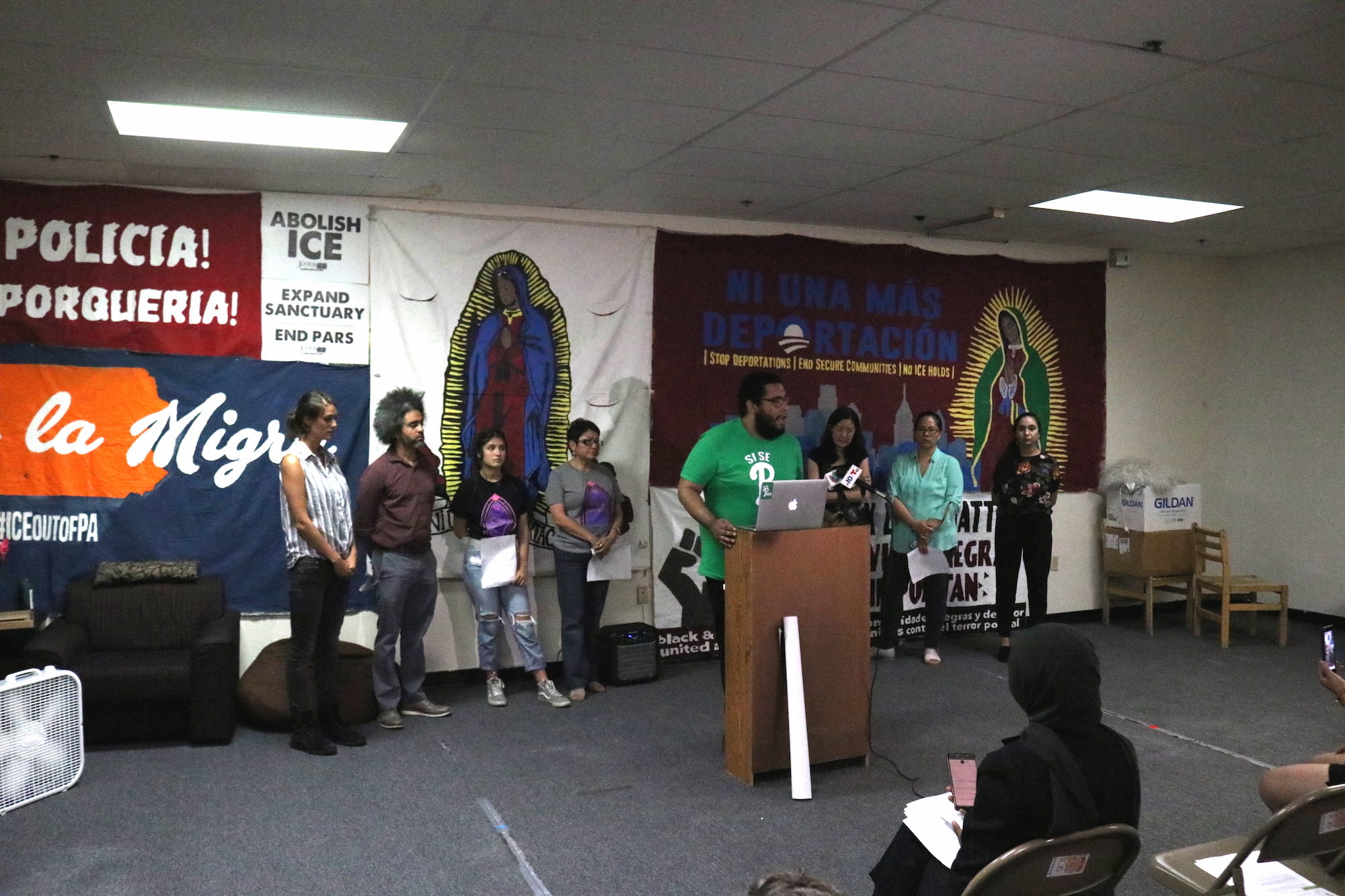
How PA Localities Help ICE
A report released last Tuesday details how some county jails and police departments in PA help ICE deport immigrants.
Outside of Philadelphia, county jails and police departments across Pennsylvania are collaborating with Immigration Customs and Enforcement (ICE) to deport immigrants.
That’s according to a study released last Tuesday by Juntos and the Sheller Center for Social Justice at Temple University. The report analyzed 18 police departments and 20 county jails in Pennsylvania for their collaboration with ICE.
It shed light on a local law enforcement system that regularly cooperates as part of a bigger mission at the federal level.
“This is something that is a direct result of the Trump administration and their goal of advancing a white supremacist agenda and attacking the most marginalized members of our community,” said Miguel Andrade, communications director at Juntos.
Of the 20 county jails analyzed, eight provide beds specifically for detained immigrants.
The 12 others included in the study offered a mixed bag of formal and informal collaboration.
Up to this point, the formal avenue for ICE collaboration was a written policy from the county jail specifying the nature of cooperation. These policies take many different forms depending on the county and type of information shared.
For example, Chester County has a written policy providing ICE access to daily jail population reports. Meanwhile, Franklin County and four others have written procedures for informing ICE when an immigrant who is targeted for deportation is scheduled for release. The latter occurs even in counties with written policies against honoring ICE detainers.
Informally, county jails often coordinate with ICE to pick up immigrants attempting to comply with the law. The report detailed a conversation between the jail in Dauphin County and ICE in which the local official offered a time to detain an immigrant who planned to come by the jail for a required parole order.
RELATED CONTENT
While county jails have a mixture of formal and informal approaches, most of the police departments included in the report operate ad hoc in regards to ICE.
Trying to take advantage of this void in policy, ICE has contacted many counties about signing a 287(g) memorandum of agreement. It would give localities the power to carry out ICE’s work, including asking about immigration status from anyone who interacts with law enforcement.
However, the report also said that 13 of the 18 police departments analyzed already collect this data.
“We cannot be doing this anymore,” said Veronica Lozada of Pittsburgh’s Casa San Jose pointing out that it makes immigrants live in fear.
The data is staggering, but Andrade says it isn’t meant to scare the immigrant community, rather inform them so they can hold elected officials accountable for the lack of policy.
“We’re hoping to empower ourselves,” he said.










LEAVE A COMMENT: